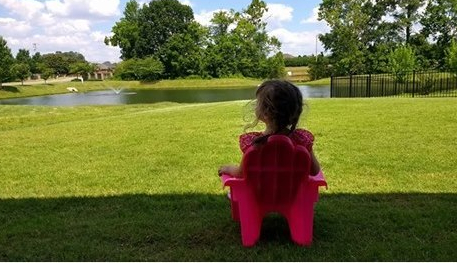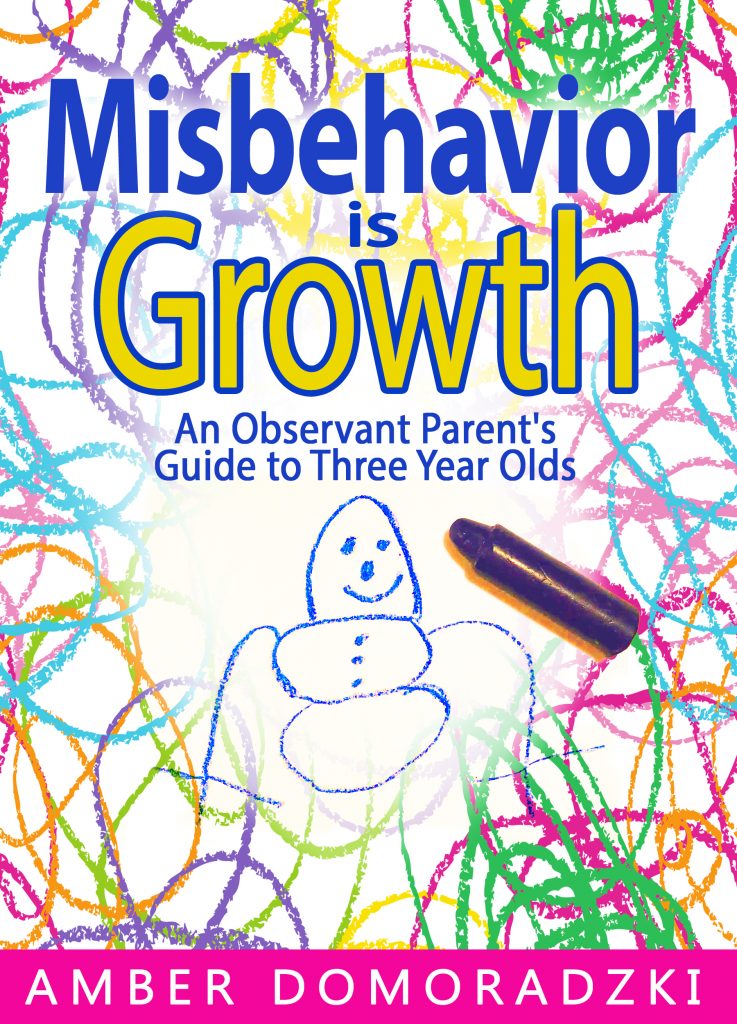The #1 thing people say they struggle with as a parent is staying patient. A wise woman told me once that if we can just keep our emotions in check, an answer to most problems can be found. I was very grateful she said that to me, and that in and of itself helped me through some trying times. When I found myself struggling with patience, especially when I had a preschooler and a toddler, I started reading many books about the issue. These are my top 5 power tools to staying patient as a parent.

1. Deep Breath
I am more than excited about a slow, deep breath. Here is the thing: as a parent, you need to react to a situation within seconds. You might not have the time or luxury to go to another room for a time out. You can’t call backup. You have to be on, ready, and yes, patient in the moment. We need tools that can help us stay present with our children while they are hitting us or each other or spilling drinks. I love a deep breath because it can work within seconds, which is all you have sometimes. It requires no extra money or effort. There are parts of the brain that are affected and calmed when you take a deep breath. If anything, it can buy you a few seconds to think. You may need to practice this at night so that it becomes automatic when you need it. If you are struggling right now, start practicing this right away. Breathe in for a count of 4 and back out for a count of 4 and try to do it 10 times. You want to get all the way to the end of that exhale. I also practice this with my children at night on occasion.
2. Bring Your Emotions Into Conscious Consideration
I learned this from Dr. Tsabary’s The Awakened Family. I recommend this book if you are having any problem with staying patient as a parent. Her ideas have been the most effective ones that I have found. She says in a moment of outburst, ask yourself what you are really feeling. It may not have anything to do with the child and more to do with an internal struggle. You might be feeling guilty or nervous. I find I sometimes operate on fear. I might be thinking, “If I don’t get that screen away from my child and get him to do a [a chore, come to dinner, do a lesson], he’ll grow up to be irresponsible!” This kind of thinking is unhelpful. We again need to stay present in the moment with our children and deal with the current problem not worry about the future. Try it the next time you are emotionally flooded: what are you really feeling?
I am opposed to the idea that all emotions can be vented. For the most part, I support the expression of emotions, but I make the exception for anger. If a person is angry, it is their job to self soothe before interacting with others. In the same way that I don’t permit myself to hit others physically, I don’t permit myself to hurt others emotionally. I consider this ability to self-soothe to be emotional responsibility. I like Dr. Tsabary’s work especially for learning this ability to self soothe.
3. Have Faith that a Workable Solution Exists
This is probably the power tool of all power tools. If you are in a battle with your child, trust that a solution likely exists, even if not immediately known. I find if I am being sucked into the negativity of the situation, say my child is whining and I just can’t take it much longer, this can really recenter me. It is the mindset of assuming abundance. Once when I had a toddler draped on me and I was sitting on the kitchen floor, such that I couldn’t move, I had my 3 year old screaming at me that she wanted the one and only frozen fruit popsicle that had been saved for her older brother. I started to be strict with her by saying, “You can’t have that one! Your choices are these other things and that’s it!” This strict “we only have a few choices” approach made her cry harder. When I switched my mindset to “assume abundance,” I changed how I spoke. I said, “Well it looks like you really want a pink popsicle. How many things can we think of that are pink? We have frozen strawberries which are PINK and strawberry yogurt which is PINK ” … we eventually reached an agreement.
4. Get Sleep
It’s cliche right? It makes a huge difference. Most of us are chronically sleep deprived. If you don’t already, make a commitment for 1 week to go to sleep by 11 pm. See what a difference it makes. I know you want some free time–trust me I know. I think we need to get better about finding that time in the middle of the day while our children are around. Maybe we could help each other more. I’m so over waiting until 10 pm at night to get anything done.
5. Recruit Support
It makes a world of difference to have someone around you who will also contribute to finding proactive, positive solutions to dealing with children. It inversely makes it worse if you have people around you who are judging you or who become very irritable with children. I know when I am at a breaking point, it makes a huge difference that my husband swoops in with patience and positivity. Can I recommend that you recommend Misbehavior is Growth: An Observant Parent’s Guide to the Toddler Years to your surrounding network? I have many ideas in my book about staying patient and effectively dealing with children. I can attest that it has made a difference for me when people around me have read it.
Misbehavior is Growth
Come join the discussion Misbehavior is Growth — The Discussion. See me on Facebook as “The Observant Mom.” See the Milestones section above for documentation on childhood developmental milestones.
A version of this article appears in Misbehavior is Growth: An Observant Parent’s Guide to Three Year Olds

Amber documents the age-related stages children go through. Send your friends to www.theobservantmom.com

3 thoughts on “Emotional Responsibility: Staying Patient as a Parent (and a Person)”